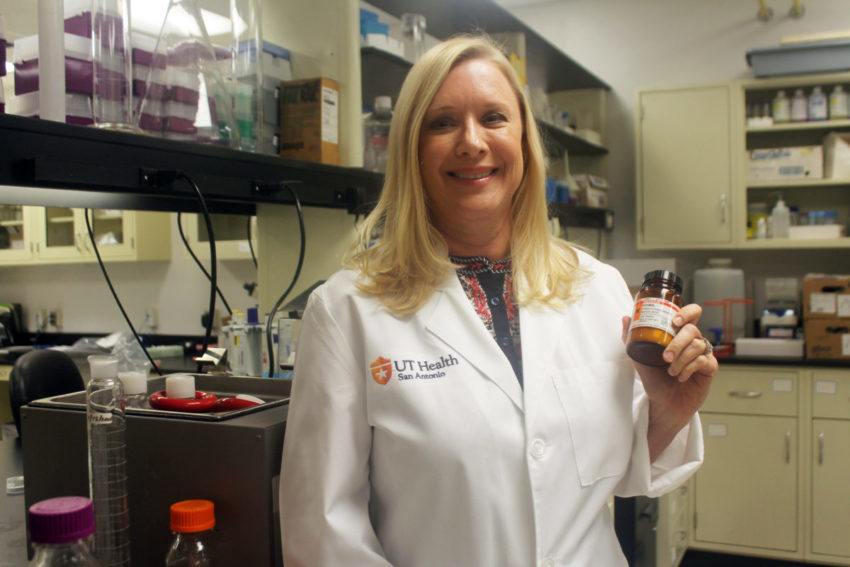Mother Nature has a way of hiding cures for diseases in plants and minerals, awaiting human discovery. This may be the case with thymol, a compound found in several plants, including thyme, oregano, rosemary and bay leaves.
“Thymol is already known to have anti-microbial, anti-fungal, anti-inflammatory and anti-oxidant properties,” said Cara Gonzales, D.D.S., Ph.D., associate professor in the School of Dentistry at UT Health San Antonio. Due to its medicinal properties, thymol is already an ingredient in a leading mouthwash, cosmetics and other products.
Dr. Gonzales and her team recently conducted laboratory and animal research that showed thymol may have merit as a preventive agent and treatment for oral cancer.
In the lab, Dr. Gonzales’s team found that thymol was effective in preventing the proliferation of oral cancer cells. In animal models of human oral cancer, thymol proved to be effective as an anti-tumor agent. “Our findings provide the first evidence of thymol’s novel anti-tumor effects against oral cancer in animals,” she said.
The team further discovered thymol selectively kills cancer cells by acting on their highly active mitochondria, which produce energy to allow cancer cells to grow. “We show that thymol induces mitochondrial dysfunction and cell death, and it may be effective against several types of cancer,” she said.
Dr. Gonzales’ research was published online May 19 in the Journal of Oral Pathology & Medicine. UT Health San Antonio has a patent on a thymol mouth rinse to prevent oral cancer and on its mechanism of action to use as a treatment for oral cancer. Dr. Gonzales hopes to conduct human clinical trials in the future.


